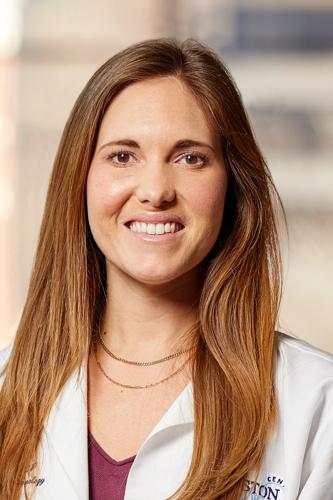BMC's Gene Therapy team is pioneering innovative gene therapy treatments as part of its mission to further clinical care and research for all patients.
Gene Therapy for Beta Thalassemia
BMC has opened a treatment center to use a breakthrough gene therapy for adults in the treatment of beta thalassemia. Beta thalassemia is a genetic blood disorder (passed down from parent to child) where the body does not make enough beta-globin, a component of hemoglobin, the protein in red blood cells that carries oxygen to cells throughout the body. This transformative gene therapy treats transfusion-dependent beta thalassemia by introducing functional copies of the beta-globin gene into a patient's own hematopoietic stem cells (blood-forming cells). It eliminates or reduces the need for red blood cell transfusions among these patients who would otherwise require lifelong blood transfusions.
Gene Therapy for Sickle Cell Disease
Boston Medical Center is the only hospital in New England to offer transformative gene therapy to eligible adults with sickle cell disease. We offer both FDA-approved gene therapies for sickle cell disease, Casgevy and Lyfegenia. Sickle cell disease is a debilitating and chronic disease that afflicts more than 100,000 Americans and predominantly impacts people of African descent, representing 1 out of every 365 births. The disease is caused by a gene mutation that makes blood cells misshapen, which can lead to strokes, organ damage, and episodes of agonizing pain. People with sickle cell disease often rely on regular blood transfusions to ease pain and reduce risk of additional complications. The new therapy leverages the latest advances in medical science to alleviate the severe painful vaso-occlusive crises associated with sickle cell disease, in a long-awaited step toward equity for a disproportionally impacted Black patient population. Learn more about BMC's Center of Excellence in Sickle Cell Disease.
Our Team
Margaux Dockerty, MSN, AGNP-C

Bhavesh H. Shah, RPh, BCOP

Trey J. Stevens, MLS (ASCP)

Reggie R. Thomasson, MD

Contact Us
3rd Floor
Monday-Friday; 7:30 AM - 5:00 PM


